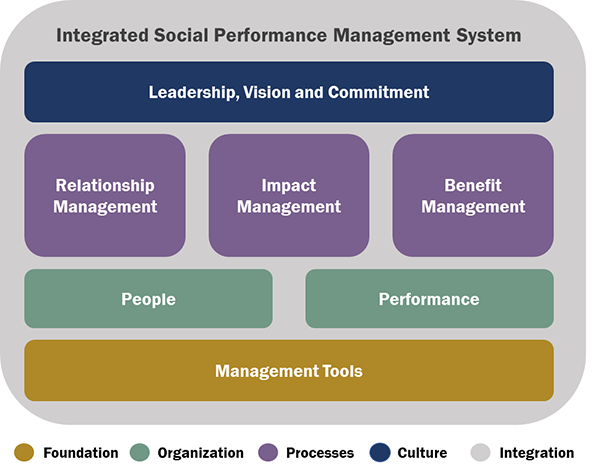Back to the Learning Academy or ESG 101.
Integrated Social Performance Management System

A social performance management system is the sum of the components that provide an effective and organized way of integrating social concerns into management decisions such that social risks are controlled, project impacts are mitigated and relationships are maintained. To support constructive stakeholder relations, companies need to a) engage with stakeholders on an ongoing basis, b) mitigate negative impacts, and c) optimize benefits. However, the implementation of such activities, requires leadership, resources, an assurance system as well as relevant standards, policies, guidance and tools. All these elements fit together and make a system for social performance management (see Figure 1).
Similar to a safety management system, it is not the responsibility of a single department to deliver results for social performance. It requires an integrated approach with alignment between policies and practices, and with social license as a consideration in decision making at different levels and across departments.
Figure 1

A successfully integrated management system, allows a company to better anticipate, circumvent, mitigate and manage social risks and impacts, maximize opportunities, and maintain productive stakeholder relations.




